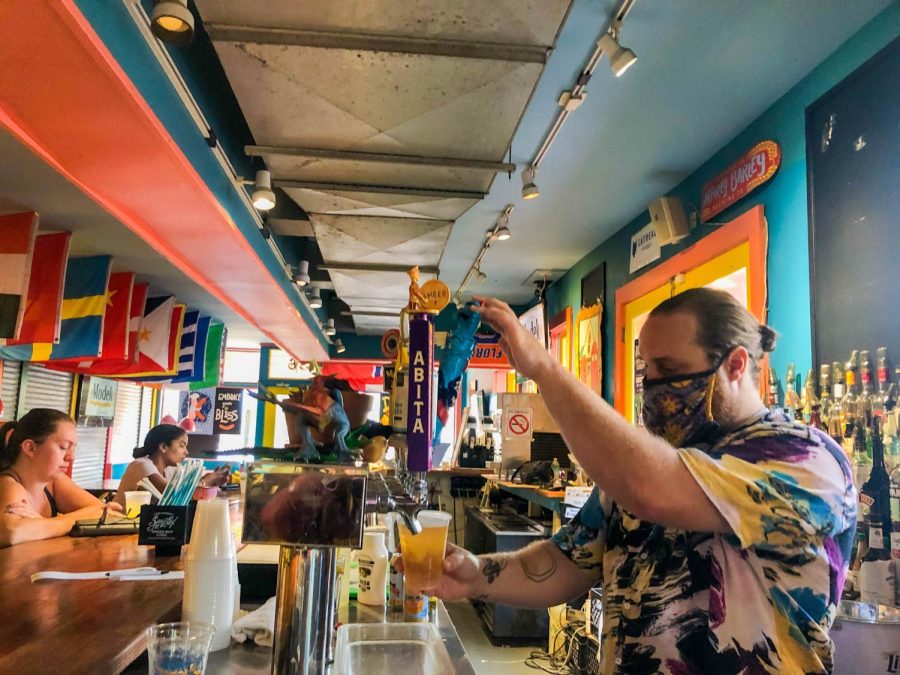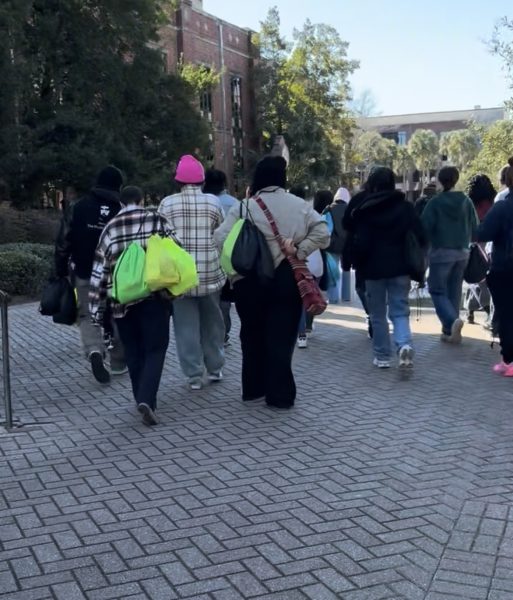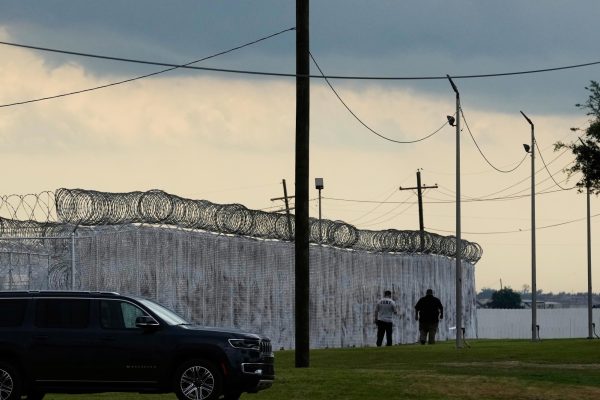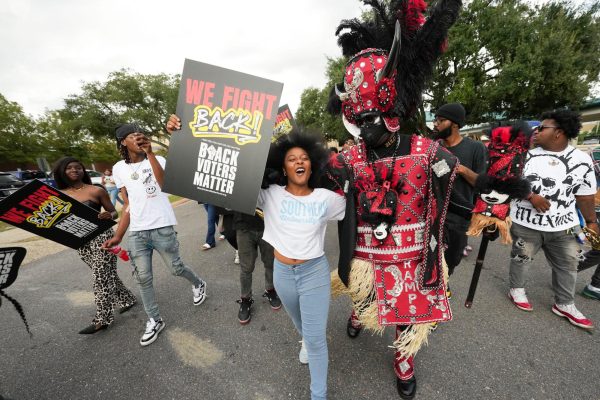Service industry still dealing with the impacts of COVID-19
Alan Berg pours a beer at Dat Dog on Magazine St., Oct. 9, 2021. Across New Orleans, food workers have assumed extra work responsibilities amid widespread short staffing.
The pandemic, subsequent mandates, and Hurricane Ida have brought the status quo of restaurant operation in New Orleans and the nation to its knees.
Just under half of all food service and accommodation businesses in the United States reported a “large negative effect” from the pandemic, according to data collected at the beginning of October from the U.S. Census Bureau. Jeremy Gulledge, general manager of Atchafalaya Restaurant in New Orleans, said that without these restaurants and their staff, the city of New Orleans and the experience it brings would be drastically different.
Gulledge said COVID-19 was one of the worst things a restaurant could go through.
“During the pandemic, there was fear, uncertainty, and, obviously, doubt of what we could do going forward,” Gulledge said.
Kelly Schulz is the senior vice president of communications and public relations for New Orleans & Company, the official destination marketing organization for the city, according to city officials. Schulz said that during the pandemic, people in the service industry were doing everything they could to combat staffing shortages.
“You had general managers at the hotels parking cars or making beds and sales people delivering food,” said Schulz. “It was not jobs that they normally would be doing, but it was whatever we needed to do to take care of the guests because the people who would have been in those other jobs weren’t there.”
The effects of the pandemic have particularly jeopardized those smaller businesses like Atchafalaya, Gulledge said.
“When working for a smaller house, there’s not a huge reserve of financial resources that we can tap into in order to assure stability within the company,” he said.
Between the lack of resources and staff, Gulledge said there were simply not enough bodies to meet demand.
James Gillum, assistant director of operations at Dat Dog, said that the restaurant was most negatively affected by mandates.
“There’s been a few waves throughout COVID-19 where business has gone severely down, mostly because of restrictions, government, local, and federal,” Gillum said.
While the restaurants themselves have been hit hard, some Loyola students who work in the service industry have seen restaurants and the industry itself evolve through it.
“Pre-pandemic there was a lot less to worry about when working in the food industry. Now, I feel like there is a lot of extra pressure to not only be safer for the people you are serving, but also to do the best to protect yourself and your friends and family,” said Loyola marketing junior and barista Josie Lopez.
Lopez, who works at Nola Beans, said that short staffing due to the pandemic has been a hurdle to get over, with her responsibilities at her job intensifying within the first month of employment there.
Physcology junior Lydia Mendoza found that working as a barista at PJ’s Coffee during the pandemic was different from her experience pre-pandemic.
“I worked at PJ’s off of Freret at the time, the one off campus, and I felt safe. I felt comfortable. There weren’t really that many problems,” Mendoza said.
Mendoza said she left PJ’s soon after the pandemic started and picked the job back up in August 2021.
In contrast to her previous experience, Mendoza said, “I found myself exhausted after every single shift because there were just so many people and there just weren’t enough people to help serve. And I mean, working at a coffee shop is six hours minimum on your feet the entire time.”
While the pandemic was a problem for the industry, Gillum felt Dat Dog got through it because of understanding customers.
Gillum said there has been a huge level of tolerance from customers concerning service and short staffing.
“Their standards have been changed due to all this because, like I said, it’s not just our problem, it’s a problem all across America,” he said.

Devin is a junior Mass Communication major with a minor in Environmental Studies. He is the News Director for all of the broadcast shows at the Maroon’s...

Rae Walberg is a Journalism and Spanish Junior from New Orleans, LA who is excited to serve as The Maroon’s projects editor. Outside of The Maroon, Rae...







